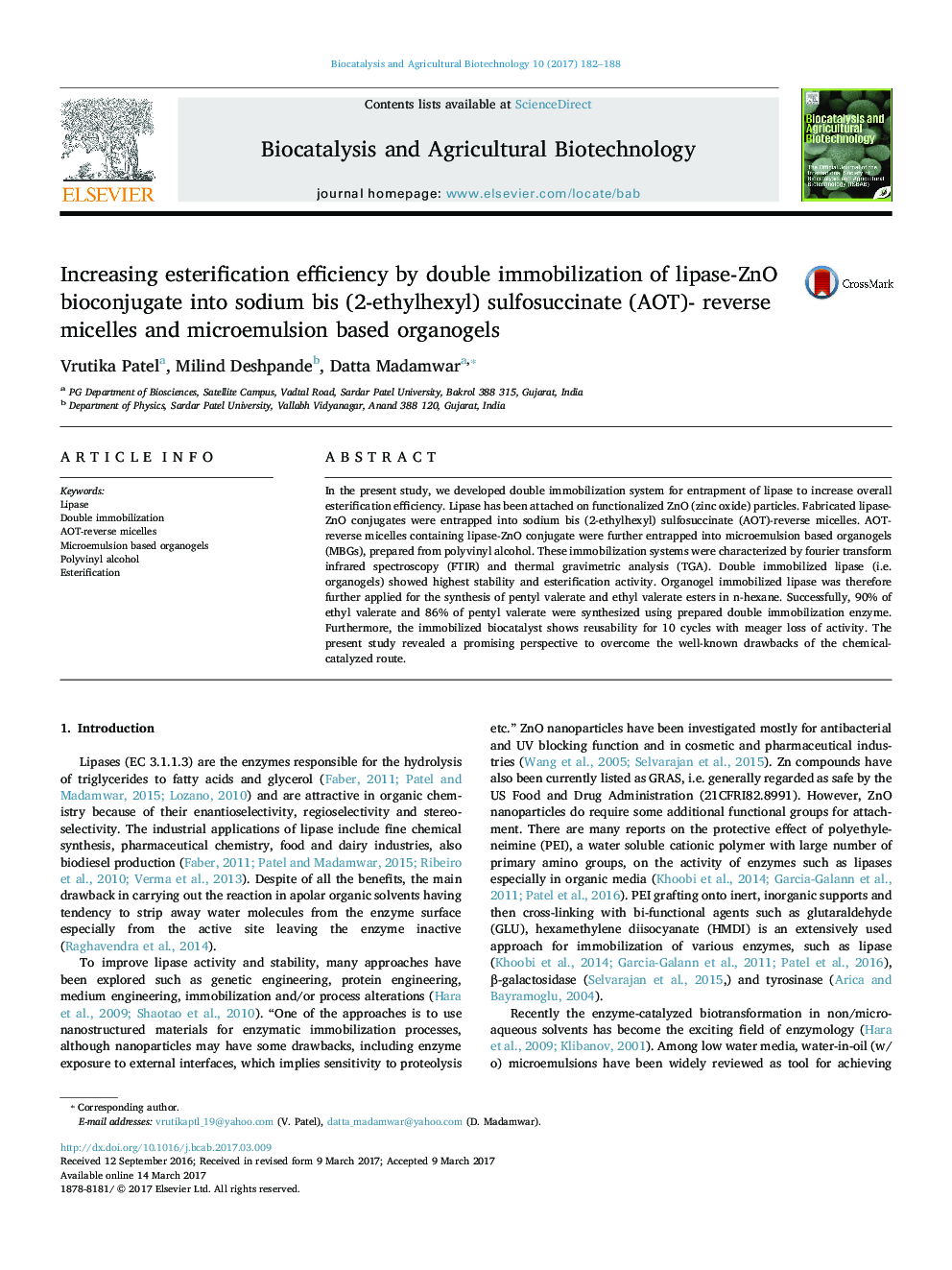| Article ID | Journal | Published Year | Pages | File Type |
|---|---|---|---|---|
| 5520464 | Biocatalysis and Agricultural Biotechnology | 2017 | 7 Pages |
â¢Double immobilization of Candida rugosa lipase on functionalized zinc oxide nanoparticles.â¢Exploitation of immobilized lipase for synthesis of industrially important ester i.e pentyl valerate and ethyl valerate.â¢Reusability of immobilized lipase for ester synthesis upto 10 cycles.â¢Increased catalytic specificity of immobilized lipase in non-aqueous medium.â¢A facile synthesis procedure enables the selective separation of enzymes from reaction mixtures.
In the present study, we developed double immobilization system for entrapment of lipase to increase overall esterification efficiency. Lipase has been attached on functionalized ZnO (zinc oxide) particles. Fabricated lipase-ZnO conjugates were entrapped into sodium bis (2-ethylhexyl) sulfosuccinate (AOT)-reverse micelles. AOT-reverse micelles containing lipase-ZnO conjugate were further entrapped into microemulsion based organogels (MBGs), prepared from polyvinyl alcohol. These immobilization systems were characterized by fourier transform infrared spectroscopy (FTIR) and thermal gravimetric analysis (TGA). Double immobilized lipase (i.e. organogels) showed highest stability and esterification activity. Organogel immobilized lipase was therefore further applied for the synthesis of pentyl valerate and ethyl valerate esters in n-hexane. Successfully, 90% of ethyl valerate and 86% of pentyl valerate were synthesized using prepared double immobilization enzyme. Furthermore, the immobilized biocatalyst shows reusability for 10 cycles with meager loss of activity. The present study revealed a promising perspective to overcome the well-known drawbacks of the chemical-catalyzed route.
